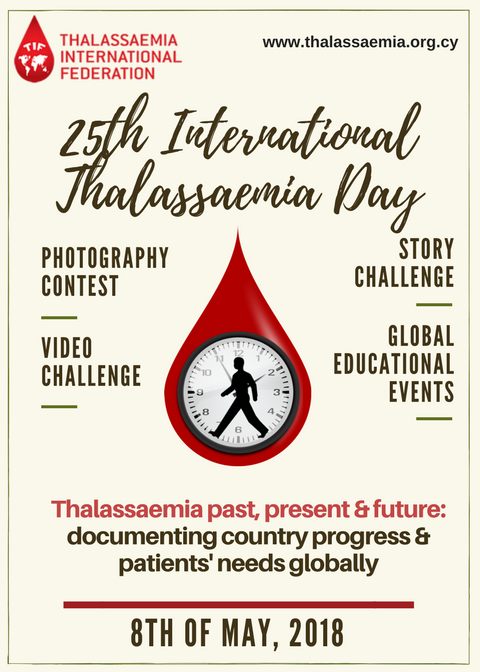Overview:
Thalassemia belongs to a family of genetic conditions affecting the human blood known as Hemoglobin disorders. It is a genetic disorder affecting the blood cells and characterized by decline, below the natural rate, in both the red blood cells and the level of hemoglobin. Hemoglobin is a substance in the red blood cells that carries oxygen, therefore the decline of hemoglobin triggers anemia.
The signs and symptoms of thalassemia depend on the type and severity of the disease. As such, some babies show signs and symptoms of thalassemia at birth; whereas others may develop signs or symptoms during the first two years of their life. Some children with an affected hemoglobin gene may not develop any thalassemia symptoms.
World Thalassemia Day is celebrated every year on the 8th of May, during which we seek to strengthen the partnership towards health systems with the patient. The Ministry of Health (MOH) obliges all those willing to get married to undergo premarital tests, in order to protect future generations against several genetic diseases, including thalassemia.
Local Statistics:
According to premarital tests, thalassemia cases amounted to 1,033 (at a rate of 0.03%), while the carriers of the disease amounted to 45,892 cases (at a rate of 1.4%), in the last ten years from 1425H-1435H.
International Statistics:
- Almost 7% of the total world population is infected with hemoglobin disorders.
- 300,000 – 500,000 children are born with hemoglobin disorders.
- 70% of children are born with sickle cell anemia, and the rest are living with thalassemia.
- Every year, 50-80% of children die from the sickle cell anemia.
- Every year, 50,000 – 100,000 children die from major thalassemia.
Official Date:
Globally: May 8th, 2018
Locally: Shaban 22nd , 1439H.

Thalassemia past, present and future: Documenting progress and patients' needs worldwide.
Target Groups:
- Children and adults with Thalassemia.
- Patients' FamHealth professionals including doctors, nurses, pharmacists and health educators.
- Education professionals including teachers, social worker and others.
- Health decision-makers.
- Health associations and organizations.
- The public.
Key Health Messages:
- Raising and boosting health awareness on thalassemia, ways of protection, and available medical care in the region.
- Promoting and enhancing the medical studies and researches in the field of thalassemia care and prevention.
- Disseminating information, expertise, and effective programs on thalassemia around the world.
- Helping the patient by supporting his right to have access to available medical care.
Related Link:
Thalassemia International Federation